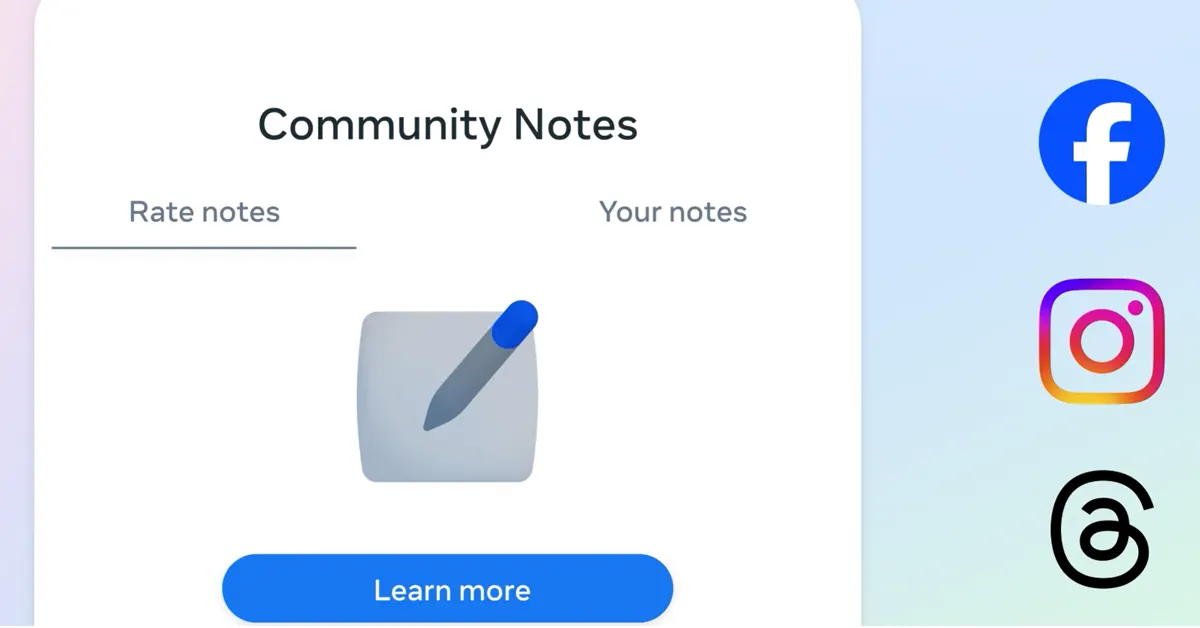In a bold move shaking up the digital landscape, Meta has launched its community notes testing phase across Facebook, Instagram, and Threads in the United States. This initiative marks a witty yet serious pivot from the old third-party fact-checking model to a more dynamic, crowd-sourced approach that promises to level the playing field in digital discourse. With around 200,000 potential contributors already on board, the beta testing is stirring both excitement and cautious optimism among tech enthusiasts and social media users alike.
Read Also: Top 4 Ways to Add Videos or Photos to Any Location on Google Maps
In This Article
How Community Notes Work
At its core, Community Notes is not about handing over the reins to a single expert or institution—it’s about empowering everyday users to add context, verify information, and ultimately provide a more balanced perspective on digital content. Here’s a snapshot of what to expect:
- User-Driven Context: Much like the popular system on X, users will write and rate notes on posts. However, these notes won’t show up publicly until the system proves its mettle in quality and consistency.
- Diverse Perspectives: The unique twist is that notes will only be published when contributors with differing viewpoints agree that the additional context is genuinely helpful. This collaborative approach aims to curb bias, ensuring a fact-checking alternative that reflects a broad spectrum of opinions.
- Character Limit & Supporting Evidence: Each note is capped at 500 characters and must include a supporting link, and compelling contributors to be both concise and evidence-based.
- Contributor Eligibility: To maintain integrity, contributors must be over 18, have accounts older than six months, and either verify their phone number or use two-factor authentication. Additionally, notes are initially limited to content in six commonly used U.S. languages, with plans to expand over time.
- No Author Attribution: In a bid to emphasize content over celebrity, author names will not be displayed, ensuring that each note is judged purely on its merit.
Building the Future of Fact-Checking
Meta isn’t reinventing the wheel; instead, it’s borrowing a proven approach by utilizing X’s open-source algorithm. This algorithm, already tested in a live environment, will serve as the backbone of the rating system that determines which notes earn a spot on posts. By considering the historical ratings of each contributor and evaluating cross-opinion agreement, the system aims to eliminate the pitfalls of politicized or biased fact-checking.
Read Also: Google released new fact-checking tools to News and Search to combat
Key features include:
- Safeguards Against Bias: Even if a note receives broad approval from like-minded users, it won’t go live unless those who typically disagree also find it valuable. This prevents organized campaigns from skewing the system.
- Non-Penalizing Context: Unlike traditional fact checks, these notes won’t reduce the visibility or reach of a post. Instead, they simply add context, leaving the original post’s audience largely unaffected in terms of engagement.
This fresh approach is being meticulously rolled out to ensure that when Community Notes go live, they truly reflect a community’s collective wisdom rather than a singular, possibly biased, perspective. The initial testing phase is deliberately slow-paced, admitting users randomly from a waitlist and rigorously evaluating the effectiveness of the notes before any public launch.
A Global Vision in the Making
While this initiative starts in the United States, the long-term goal is to extend the Community Notes system worldwide. For now, third-party fact-checking will continue in other regions until Meta is satisfied that the community-driven approach is robust enough to replace it entirely.
In essence, Meta’s new community notes testing represents a fascinating experiment in digital democracy—a move that could redefine how we assess and trust information on social media. It’s a step towards social media transparency, where the collective voice of users could help counteract the inherent biases of centralized fact-checking.
As we watch this experiment unfold, one can’t help but admire the ambition behind a system that champions community over centralized authority. The future of fact-checking is looking refreshingly unpredictable—and maybe, just maybe, a lot more democratic.





